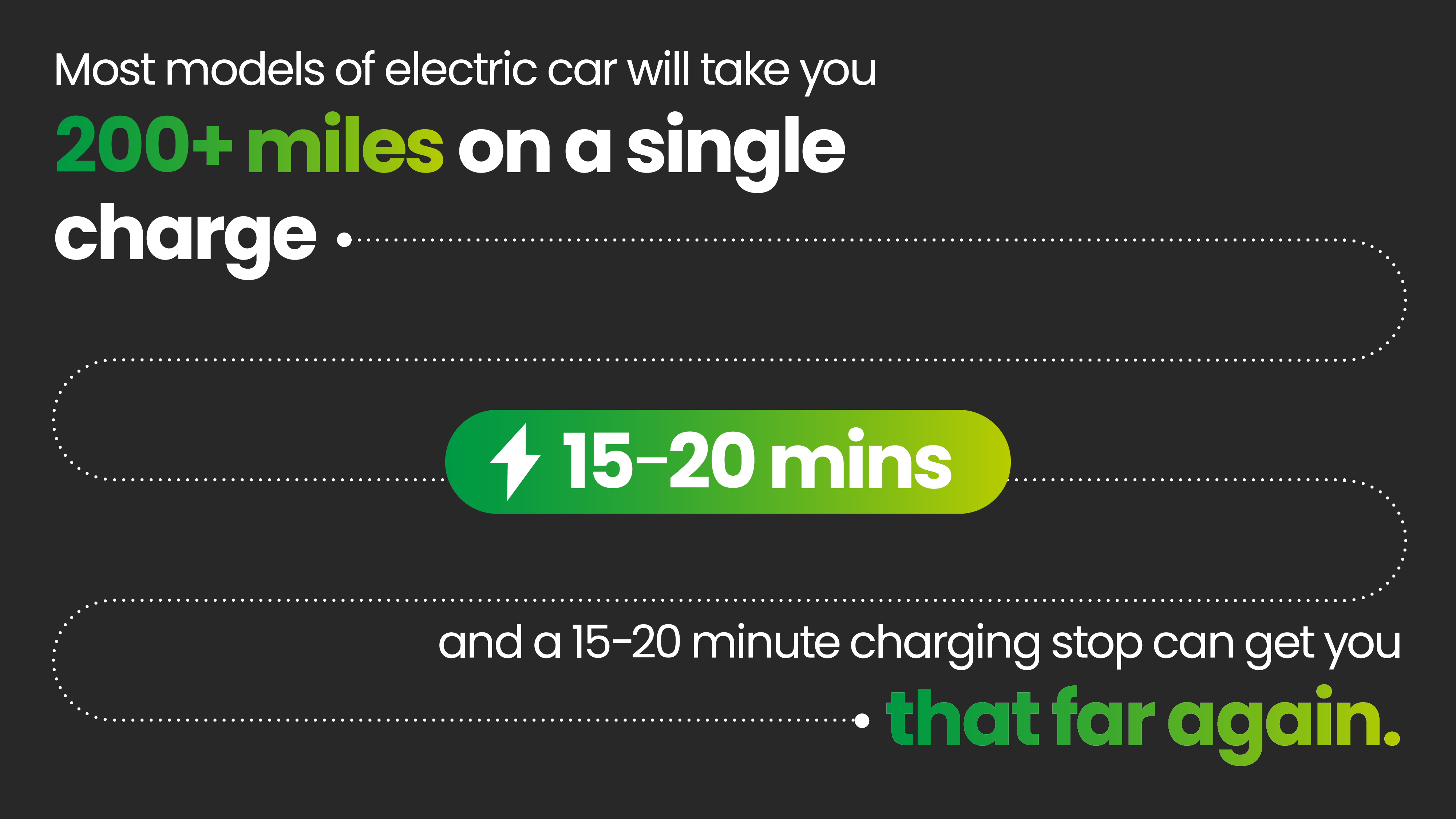Taking stock of the UK’s Seventh Carbon Budget
The latest carbon budget, released by the Climate Change Committee (CCC) on 26 February, highlights electrification and private sector financing as crucial for reducing emissions.
Lack of EV charging availability is one of the main barriers to people switching to electric cars.

Transport is the single largest contributor to UK greenhouse gas emissions, so the switch to electric vehicles is an opportunity to improve air quality, create new jobs and grow the economy. Across Lex Autolease, Blackhorse and Tusker, our fleet of electric cars is one of the largest in the UK.
So not only are we leading the UK's EV transition, but we're also hearing directly from our customers about the things that worry them most. And not having anywhere to charge their vehicles is one of the top reasons why people aren't making the switch.
However, much of this “range anxiety” is arguably misplaced.
The latest electric cars often have a range of at least 300 miles, with many newer ones even breaking the 400-mile barrier. This means that drivers are increasingly more confident about taking them on longer trips. It also means that EVs are ever more suited to that once a week ‘fill up’ charge (as the average weekly mileage is somewhere between 100 and 150 miles) – which is particularly useful for people who can’t charge at home.
Of course, all of this puts increasing pressure on our national charging infrastructure. As more and more people make longer journeys, or more people want to do that weekly charge, there needs to be adequate provision made across the country.
Huge strides have already been made. Research and analysis conducted earlier this year by ChargeUK and New AutoMotive shows that there are now nearly a million home, work and public charge points in the UK today - almost one for every fully electric vehicle – and that a new public charge point is being installed every 25 minutes.
In addition, the current UK infrastructure can provide enough power to enable every EV in the UK to drive 580 miles a day – that’s 25 times the average daily car journey. At this rate of growth, there will be over 300,000 public charge points in the UK by 2030.
This view is supported by a new audit compiled by Barbour ABI, which reveals that the number of plug-in stations is set to increase dramatically over the next two years. As reported by The Times1, more than 120 planning applications for plug points, worth more than £500 million, have been granted in the last 18 months by local authorities, equating to hundreds of thousands of new points across the country.
And one further move which will undoubtedly make a significant difference is the introduction of the new Public Charge Point Regulations which were passed last year and came into force on 24 November.
"The current UK infrastructure can provide enough power to enable every EV in the UK to drive 580 miles a day – that’s 25 times the average daily car journey."

The new regulations stipulate that rapid charge points must now be 99% reliable, meaning drivers will be faced with fewer instances of “out of order” chargers. New charge points above 8kW and existing ones above 50kW must now offer contactless payment to consumers, taking away the need for multiple apps or payment methods, and allowing customers to simply tap their card to start charging.
The maximum price of a charging session must be displayed clearly in pence per kilowatt hour, making it easier for drivers to compare prices and manage their charging expenses.
And a free to use, 24/7 staffed telephone helpline must be available and advertised at all charge points, providing drivers with immediate assistance and peace of mind.
Certainly, one of the biggest issues that puts people off driving an EV should now become less of a barrier as a result, and these changes should help make the EV charging experience more seamless, reliable and user-friendly.

While we welcome the new regulations, there is still more to do. At Lloyds Banking Group we are calling on the government to help ensure drivers of electric vehicles have the right access to charging when they are on the go, by:
Other policy calls that we are making around electric vehicles are focused on providing certainty. As well as prioritising the rapid and fair roll out of charging infrastructure, we want the government to remain committed to the essential incentives that are needed to encourage drivers to switch to EVs – for example favourable benefit-in-kind rates and the availability of EVs through salary sacrifice schemes.
We also want to see a single battery health testing standard to give confidence to consumers considering a used EV, and a collaborative communications strategy that provides clear and trustworthy information on EVs.
Because a transition of this scale is such a huge undertaking, any changes will have a real domino effect: We invest in the fleet that we lease to drivers; the manufacturers invest in product development and marketing; charge point operators invest in infrastructure and grid connection.
All of this is aligned to usage projections, which depend on stimulating demand for electric cars. Yet that demand is struggling in the face of rising interest rates and a concerted campaign of misinformation.
The new charge point regulations are another great step towards normalising the use of EVs and, by addressing all these areas, we can create a robust and reliable charging network that meets the needs of all EV drivers.
Combined with our other policy asks, we believe that consumers will become increasingly confident in changing to an EV, leading to a cleaner, greener future for everyone.

Managing Director, Lex Autolease
Nick joined Lloyds Banking Group in April 2006 as part of the Retail Division of HBOS. Here Nick led the change agenda across all products areas through unprecedented levels of change. His role spanned merger process to form Lloyds Banking Group; leading the integration of the two heritages mortgage businesses; supporting the divestments of TSB and Sainsbury's; extensive regulation changes and leading the growth change agenda for Retail following the first Group Strategic Review.
Since then, Nick evolved as a technology leader and took on a number of roles such as transforming the Group’s Digital business into a world class eCommerce capability (2014 to 2017), leading the technology transformation for our Commercial Banking and Business division (2017-2019), and held the roles of Deputy Group Transformation Director (Q4 2019 to Q1 2021) and Group Director, Transformation (Q1 2021 to October 2022), before joining the Transport business in October 2022.
Nick was the Group Regional Ambassador for the North of England during 2014-2017 and since 2014 has continued to play a pivotal role in driving the digital skills and inclusion agenda, including working on policy in partnership with the Department for Digital Culture Media Sport.
In 2018, Nick launched the Lloyds Bank Academy and has been crucial to the development of the Lloyds Bank Consumer Digital Index and Business Digital Index - the UK's largest leading measures of digital, financial and business skills. He is also a Non-Executive Director of Mersey Care NHS Trust, providing specialist inpatient and community mental health services across the North West of England.
Nick lives in Cheshire with his wife and two boys.
The latest carbon budget, released by the Climate Change Committee (CCC) on 26 February, highlights electrification and private sector financing as crucial for reducing emissions.
Charlie Nunn meets our clients at Newlyns Farm, to talk about the part they play in their local community, the role sustainability plays in farming, and how they’re adapting to new challenges.
Lack of EV charging availability is one of the main barriers to people switching to electric cars.
Popular topics you might be interested in